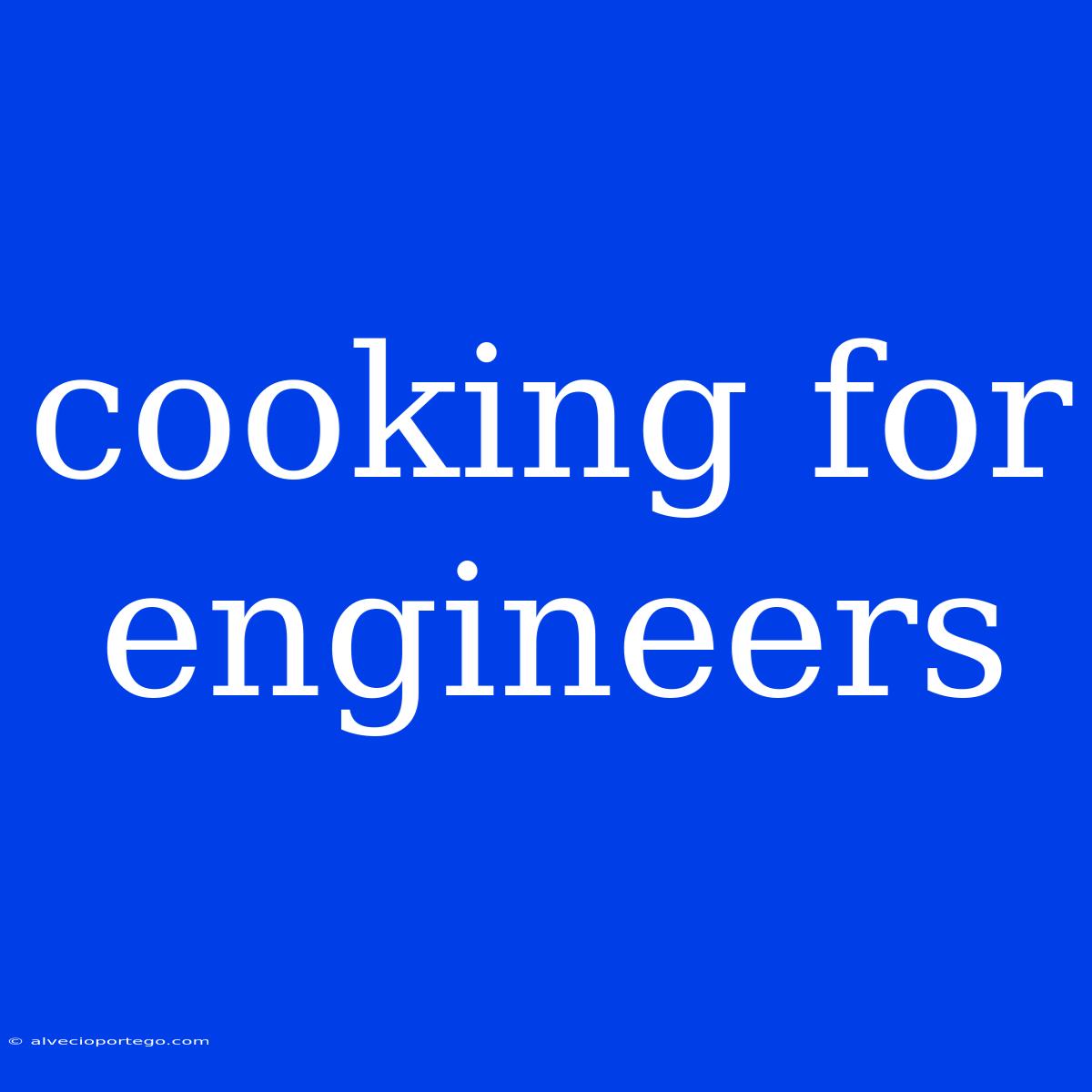Cooking for Engineers: A Practical Guide to Kitchen Mastery
Engineers are known for their analytical minds, problem-solving skills, and meticulous attention to detail. These same qualities can make them excellent cooks, if they can channel their analytical tendencies into the world of culinary arts. Here's a practical guide to help engineers navigate the kitchen:
1. The Engineering Approach to Recipes:
- Break it down: Treat recipes like engineering blueprints. Instead of just reading, break down each step and understand its purpose. Why is the meat seared before being braised? What does adding lemon juice do to the marinade?
- Quantify: Engineers thrive on precision. Use measuring cups and spoons, and weigh ingredients for consistency.
- Process flow: Think of your recipe as a process flow diagram. Identify the critical steps and their order, ensuring each step builds upon the previous one.
- Optimize: Analyze your cooking process to find areas for improvement. Can you reduce cooking time by using a pressure cooker? Can you pre-chop vegetables to save time?
2. Engineering the Perfect Kitchen:
- Ergonomics: Optimize your kitchen for efficiency. Designate clear zones for prepping, cooking, and cleaning. Use tools that fit your hand and reduce strain.
- Tool selection: Invest in high-quality tools. Sharp knives, sturdy cutting boards, accurate thermometers, and durable pots and pans make a big difference.
- Organization: Implement a system for storing ingredients and equipment. Use clear containers, label everything, and keep your pantry organized.
3. Engineering Your Culinary Skills:
- Embrace the science: Cooking is a science! Learn about the Maillard reaction, caramelization, and how heat affects different ingredients. This knowledge will help you understand why things work the way they do.
- Master the basics: Build a solid foundation by mastering essential techniques like sautéing, braising, roasting, and baking. These techniques are the building blocks for countless dishes.
- Experimentation: Once you understand the fundamentals, don't be afraid to experiment. Try new ingredients, substitute flavors, and innovate in the kitchen.
- Data analysis: Keep a cooking journal to track recipes, cooking times, and ingredient variations. This data will help you refine your recipes and identify what works best for you.
4. Engineering Flavors:
- Balance: Pay attention to the balance of flavors in your dish. Think about the five basic tastes: sweet, sour, salty, bitter, and umami.
- Layering: Build complex flavors by layering ingredients. Start with a base flavor and add complementary notes as you go.
- Contrast: Use contrasting textures and temperatures to create a more interesting dining experience. Think creamy risotto with crispy fried onions, or a juicy steak with a cool, refreshing salad.
- Presentation: Don't forget the visual appeal! Plate your food artfully and consider using garnishes to enhance the overall presentation.
Cooking as an Engineer: A Rewarding Journey
By applying their analytical minds and problem-solving skills, engineers can become exceptional cooks. Embrace the science, master the fundamentals, and experiment with confidence. The kitchen becomes a laboratory for creativity and exploration, where a well-executed recipe is both a scientific triumph and a delicious reward.

